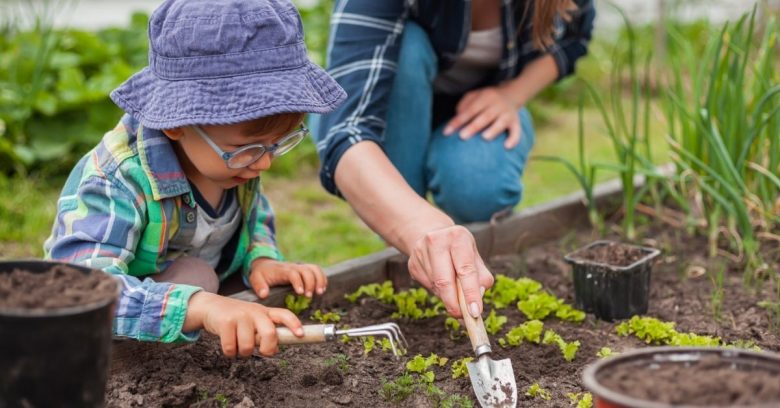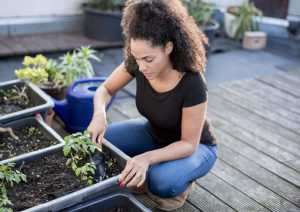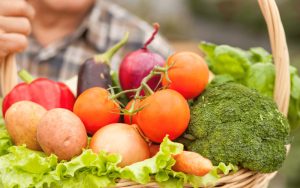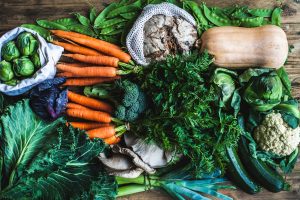Growing fruits, vegetables, herbs, and other edible plants at home is known as edible gardening, and it is a fulfilling and healthy pastime that has become somewhat popular lately. This growing trend is not only a relaxing and fun pastime but also offers several benefits for people, society, and the environment. This article discusses several benefits of edible gardening and how this little hobby can promote overall well-being, save money, promote sustainability, and improve health.
1. Improve Health
The health benefits of edible gardening are one of the most important benefits. Growing your own food guarantees access to fresh, nutritious produce. Fruits and vegetables selected at their peak ripeness contain more vitamins, minerals, and antioxidants than store-bought produce (which is sometimes harvested early and shipped long distances). Edible gardening also promotes better eating habits. Growing your food increases the likelihood that you will eat a variety of fruits and vegetables, resulting in a more balanced and nutritious diet. In addition, gardening is a physical activity in itself that can increase flexibility, strengthen muscles, and improve cardiovascular conditions.
2. Environmentally Sustainable Development
Edible gardening is a big step toward environmental sustainability. Growing your food can help you meet the demands of commercial agriculture, which sometimes relies on synthetic fertilizers, dangerous pesticides, and massive water use. Often requiring more sustainable methods such as composting, organic fertilization, and natural pest control – which help maintain soil quality and reduce the impact on the environment – home gardening and edible gardening can reduce your carbon footprint. The food industry significantly increases greenhouse gas emissions due to the transportation, processing, and packaging of food. Growing food at home reduces the need for these energy-intensive activities, lowering overall emissions. Additionally, indoor gardens act as carbon sinks and help reduce climate change by absorbing carbon dioxide from the atmosphere.
3. Save Money
The potential cost reduction of edible gardening remains another major benefit. Growing your herbs, vegetables, and fruits can save you a lot on your grocery bills. Often the savings from not having to buy produce at the market quickly outweigh the initial costs for seeds, soil, and garden tools. Edible gardening allows you to grow expensive, high-quality food straight from the source. For example, it is quite easy and inexpensive to grow fresh herbs, berries, and specialty vegetables at home, even though they are expensive at the store. By growing these high-value crops, you can enjoy quality produce without paying expensive prices.
4. Enhanced Well-Being
Gardening has many proven psychological benefits, improving mental and emotional well-being. Caring for plants and spending time in nature can help people reduce anxiety, depression, and stress. Gardening provides a sense of success and direction when you see plants blooming under your care. Physical activity in Gadding also releases endorphins, the body’s natural mood boosters that increase overall well-being and reduce stress levels. Furthermore, time spent in green areas and outdoors is associated with improved cognitive skills and mental health.
5. Community Building
Edible gardens help create social connections and develop community connections. Community gardens (where people come together to create food) can socialize, share knowledge and collaborate. These shared spaces create a sense of community and connection, inspiring individuals to work together toward common goals. Community gardens can also help alleviate food poverty by providing fresh food to those in need. They provide affordable, healthy food in places where there are no grocery stores or limited fresh food options. Creating or supporting a community garden contributes to the overall health of your community.
6. Improve Variety and Taste
In general, home-grown vegetables taste better than commercially grown vegetables. This is because you can grow heirloom and specialty varieties (not usually found in stores). Often these variations are chosen for their delicious taste and nutritional value, rather than their ability to withstand long trips and extended shelf life. Growing your food allows you to try a variety of crops and varieties, diversifying your diet. Try exotic fruits and vegetables, study different cooking techniques, and taste the special taste of freshly harvested products.
7. Food Security
At a time when the world is becoming increasingly scarce for food, edible gardening offers a level of self-reliance and resilience. Growing your food ensures you always have fresh vegetables, regardless of disruptions in the food supply chain. This is especially important during emergencies, economic downturns, or natural disasters. By growing a vegetable garden, you gain the knowledge and opportunities to increase your capacity for sustainable food production. This self-sufficiency contributes to individual and community resilience by reducing dependence on external food sources and increasing overall food security.
Conclusion
Improved health, environmental sustainability, financial savings, improved well-being and more are just a few of the many benefits of food gardening. By growing your food, you can enjoy fresh, nutritious produce, reduce your impact on the environment, save money, and strengthen your connection to the natural world. Whether you have a large backyard or a small balcony garden, edible gardening can provide a fulfilling and transformative experience that can improve your life and community. Embrace the discipline of edible gardening and enjoy the many benefits it offers.
FAQs
1. How does edible gardening help strengthen communities?
Edible gardening strengthens relationships between people through shared activities in community gardens. It promotes collaboration, knowledge sharing, and social connections. Community gardens can also help address food shortages by providing fresh food to those in need.
2. Can gardening teach something?
One of the useful learning tools is gardening. Besides teaching young people responsibility and patience, it also covers biology, ecology, and nutrition. For adults, it offers the opportunity to learn new things about food production and environmentally friendly living.
3. Is homegrown food tasty?
Because you can grow heirlooms and specialty varieties are chosen for their flavor rather than shelf life, homegrown varieties often taste better than store-bought varieties. Freshly harvested vegetables also have greater taste and nutritional value.
4. In what ways can edible gardening contribute to food security?
Edible gardening ensures a continuous supply of fresh food, regardless of changes in the food supply network. It can increase resilience and self-sufficiency during natural disasters, economic downturns, or crises.
5. What impact will edible gardening have on the environment?
Edible gardening can help act as a carbon sink and absorb carbon dioxide, reducing dependence on fossil fuels and the need for destructive agricultural methods. It promotes an eco-friendly lifestyle and diversity.
6. How do I get started with food gardening given my limited space?
Using containers or vertical gardening techniques, you can create a small food garden on your windowsill or balcony. For those who don’t have enough space at home, community gardens can also provide that space.




